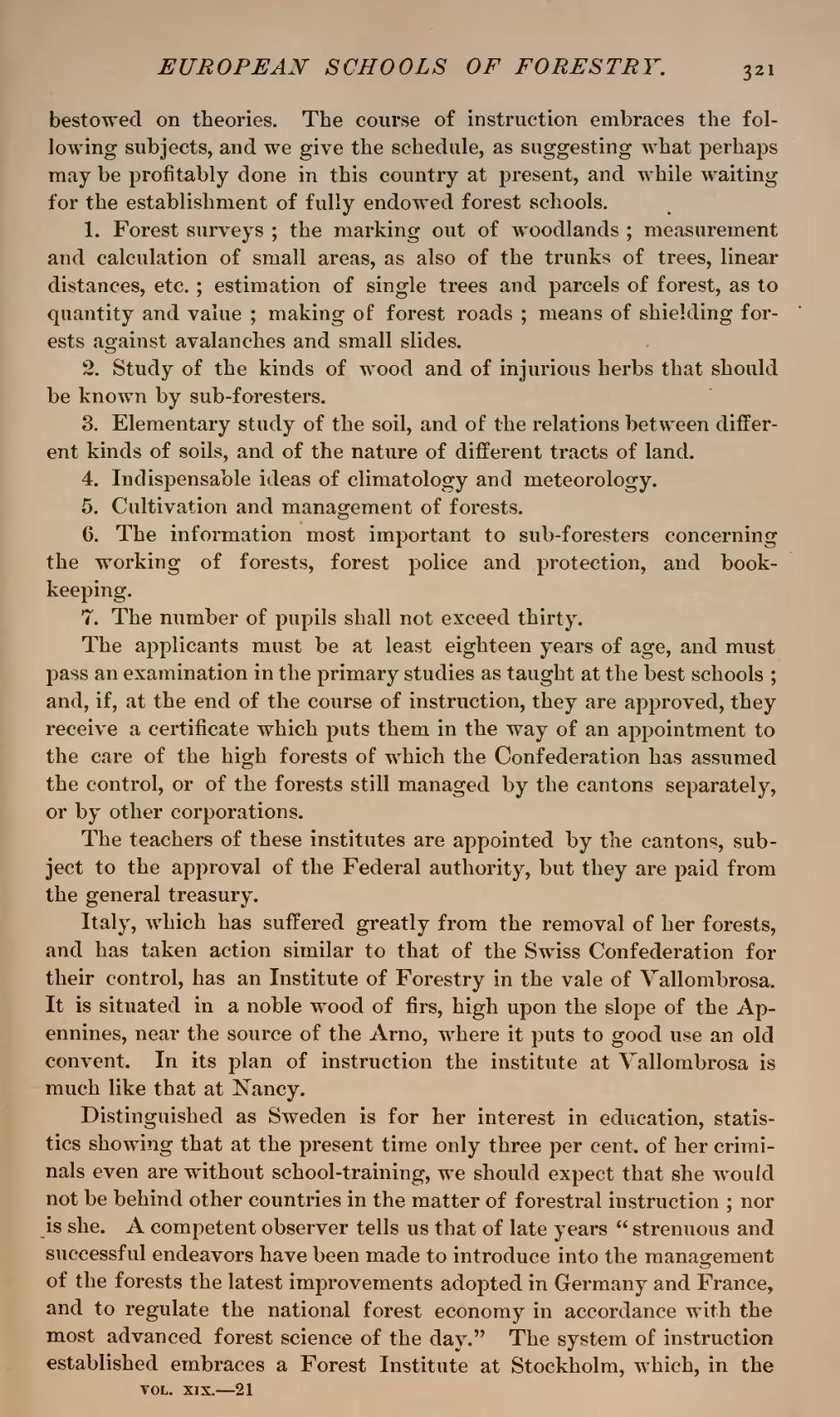bestowed on theories. The course of instruction embraces the following subjects, and we give the schedule, as suggesting what perhaps may be profitably done in this country at present, and while waiting for the establishment of fully endowed forest schools.
1. Forest surveys; the marking out of woodlands; measurement and calculation of small areas, as also of the trunks of trees, linear distances, etc.; estimation of single trees and parcels of forest, as to quantity and value; making of forest roads; means of shielding forests against avalanches and small slides.
2. Study of the kinds of wood and of injurious herbs that should be known by sub-foresters.
3. Elementary study of the soil, and of the relations between different kinds of soils, and of the nature of different tracts of land.
4. Indispensable ideas of climatology and meteorology.
5. Cultivation and management of forests.
6. The information most important to sub-foresters concerning the working of forests, forest police and protection, and bookkeeping.
7. The number of pupils shall not exceed thirty.
The applicants must be at least eighteen years of age, and must pass an examination in the primary studies as taught at the best schools; and, if, at the end of the course of instruction, they are approved, they receive a certificate which puts them in the way of an appointment to the care of the high forests of which the Confederation has assumed the control, or of the forests still managed by the cantons separately, or by other corporations.
The teachers of these institutes are appointed by the cantons, subject to the approval of the Federal authority, but they are paid from the general treasury.
Italy, which has suffered greatly from the removal of her forests, and has taken action similar to that of the Swiss Confederation for their control, has an Institute of Forestry in the vale of Vallombrosa. It is situated in a noble wood of firs, high upon the slope of the Apennines, near the source of the Arno, where it puts to good use an old convent. In its plan of instruction the institute at Vallombrosa is much like that at Nancy.
Distinguished as Sweden is for her interest in education, statistics showing that at the present time only three per cent. of her criminals even are without school-training, we should expect that she would not be behind other countries in the matter of forestral instruction; nor is she. A competent observer tells us that of late years "strenuous and successful endeavors have been made to introduce into the management of the forests the latest improvements adopted in Germany and France, and to regulate the national forest economy in accordance with the most advanced forest science of the day." The system of instruction established embraces a Forest Institute at Stockholm, which, in the

